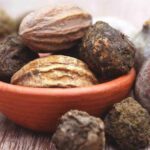A natural reflex, cough helps to clear up the throat and lungs of irritants. Usually, occasional dry cough is not a cause for concern. However, a persistent increase in coughing can be a signal of an underlying medical condition that can be more serious. Cough which does not have any phlegm or mucus, is called dry cough or tickly cough. These are usually referred to as non-productive coughs by the doctors while wet cough called productive cough brings up phlegm which helps in clearing the airways of irritants. A medical condition classifies to be acute or chronic if a cough lasts for more than eight weeks. If it is associated with a cold or the flu, then it tends to last a week or two at most and clear up within three weeks mostly. However, if anyone had a viral illness, then the post-viral cough may last for several (up to about 8) weeks, while some coughs continue for longer and are usually a sign of a severe underlying problem.
A cough which lasts for more than eight weeks is a chronic (ongoing) persistent cough in adults. However, if it lasts 2 to 4 weeks in children, then it is called a prolonged acute cough.
Home Remedies for Dry Cough
To cure persistent coughing, many people try to use many home remedies. We have listed 14 home remedies.
Honey Tea / Raw Honey
Unadulterated & Raw honey is known as one of the most used home remedies for cough. However, nowadays, the honey available in markets contains extra ingredients. Therefore it is necessary to make make sure it’s raw honey gathered from local bees. Another popular form of including honey is by mixing it with warm water. Some research around this has shown benefits of honey for curing cough. Doctors have reported that honey provides the most significant relief from coughing, which is followed by dextromethorphan. To make the home medicine, mix two teaspoons (tsp) with herbal tea or warm water and drink this once or twice a day.
Liquorice Root Tea
This tea has a relaxing effect on your throat and also loosens congestion. To make this tea, boil around 8 ounces of water and add two tablespoons dry liquorice root to it.
Ginger
Ginger has anti-inflammatory properties ginger that helps easing dry or asthmatic cough while also relieving nausea and pain. Studies show that anti-inflammatory compounds in ginger relax the membranes present in the airways, which also helps in reducing cough. These researchers mainly focused on the effects of ginger on human cells and animals. The best way to use ginger is by adding 20–40 grams of fresh ginger slices to hot water. Let it brew for a sometime before drinking. If needed, one can further improve the taste and its effect by adding honey or lemon juice. Note that too much ginger can cause stomach upset or heartburn.
Turmeric
Also called curcumin, turmeric has properties like antiviral, antibacterial and anti-inflammatory. One can use it by adding grounded turmeric and carom seeds in equal quantity to 4 cups of water. Boil the mixture until its half. If needed, add honey for taste and drink up.
Fluids
If you are suffering from cold or cough, it is essential to stay hydrated. Studies show that drinking liquids/water at room temperature can help in relieving cough, runny nose, and sneezing. However, in the case of severe cold or cough, it is preferable to warm the liquid before consuming. It also helps in alleviating more symptoms like sore throat, chills, and fatigue. The effect was immediate and lasted for a continued period after finishing the hot beverage. Drinks that may be comforting include:
- herbal teas
- clear broths
- warm water
- warm fruit juices
- decaffeinated black tea
Steam
Taking a hot shower or bath, or staying a room filled with hot steam may help in reducing the symptoms. It is advisable to drink water after the session to cool down and prevent dehydration. Alternatively, one can make a steam bowl by filling a large bowl with hot water. You can also add herbs or essential oils, such as eucalyptus or rosemary, which might help in relieving decongestion. To get the required effect, you should lean over the bowl and place a towel over the head. This will trap the steam inside while you inhale the vapours.
Marshmallow root
A herb with a long history in treatment for coughs and sore throats helps in easing irritation from coughing as it contains high mucilage content. The study suggests that herbal cough syrup which has marshmallow root, along with thyme and ivy, relieved coughs effectively, which were due to respiratory tract infections and common colds. 90% of the participants rated its effectiveness as good or very good after 12 days of use. The root is available as a dried herb or a bagged tea. To make a home remedy, you can add the root to hot water and drink it immediately. The longer the marshmallow root remains in the water, the more mucilage will be present. There are few side effects such as stomach upset, but it can be cured by drinking extra fluids.
Saltwater gargle
The simple and one of the most effective home remedy for treating a sore throat and wet cough is to gargle with saltwater. It helps by reducing phlegm and mucus in the back of the throat that lessens the urge to cough. One can use this method by adding a teaspoon of salt into warm water until it dissolves. Keep the mixture at the back of your throat for sometime before spitting it out. Use it several times a day until the condition is improved.
Bromelain
It is an enzyme that is found in pineapples and is the most plentiful in the core of the fruit. Having anti-inflammatory mucolytic properties, it helps in breaking down the mucus and flush it out from the body. Moreover, drinking pineapple juice has helped in reducing mucus and suppressing cough. However, bromelain in the juice may not be enough to relieve symptoms. There are bromelain supplements available in the market which may be more effective at reducing cough. Also, there are chances that you can be allergic to bromelain. Moreover, it also has few side effects like and interacts with other medication.
Thyme
Having both culinary and medicinal uses, thyme a common remedy for a cough, bronchitis, sore throat, and digestive issues. Studies have shown that thyme and ivy leaves infused cough syrups relieves coughing more effectively and quickly than other syrups. This is because of the antioxidants present in the plant. To treat coughs at home, you can use thyme tea by adding 2 tsp of dried thyme to hot water.
Dietary changes for acid reflux
Being a common cause for cough, it is advisable to foods that can trigger acid reflux. This is one of the best ways to manage and reduce cough. However, reflux triggers vary from person to person, which they need to avoid. If you are unsure of what causes reflux, then you can begin by eliminating the most common triggers and monitoring your symptoms. The products that most commonly trigger the reflux includes:
- Alcohol
- Caffeine
- fried and fatty foods
- Chocolate
- garlic and onions
- citrus foods
- spices and spicy foods
- mint
- tomatoes and tomato-based products
Slippery elm
Native Americans traditionally used slippery elm to treat cough and digestive issues, and it is similar to marshmallow root. Both contain a high level of mucilage, which helps in soothing sore throat and cough. One can use this by adding 1 tsp of the dried slippery elm to hot water. Brew it for at least 10 minutes and then drink it. Note that it can interfere with the absorption of medications.
N-acetylcysteine (NAC)
Taking a daily dose may help in reducing the frequency and severity of a cough by decreasing mucus in the airways. NAC is a supplement that comes from the amino acid L-cysteine. Thirteen studies show that it can majorly and consistently reduce symptoms in people diagnosed with chronic bronchitis. Also, the researchers recommended that a daily dose of 600 milligrams is useful for people without airway obstruction, and at most 1,200 mg for those who have a blockage.
However, there are side effects which can be severe and includes hives, fever, swelling, and difficulty breathing.
Probiotics
Probiotics do not directly ease a cough, but they help in boosting the immune system. They do this by balancing the bacteria present in the gut. A healthy immune system helps to fight off allergens or infections that may be the reason behind the cough. Lactobacillus, a type of probiotic, provides an amazing benefit in avoiding the common cold, according to research. Supplements that consists of Lactobacillus and other types of probiotics are easily available at drug stores and health stores. Some foods are also naturally rich in probiotics, including:
- miso soup
- kimchi
- sauerkraut
- natural yoghurt
- Symptoms, causes and risk factors of dry cough
- Many medical conditions can lead to coughing, and this it is essential to note the duration, type and features of your cough.
Symptoms
In many medical conditions, coughing is a symptom. Doctors classify a cough by its duration and other specific features:
- Sudden onset and continues up to 3 weeks – Acute cough
- Cough that only happens at night – Nocturnal cough
- Lasts between 3-8 weeks – Sub-acute cough
- Cough than brings up phlegm – Productive cough
- Lasts for more than eight weeks – Chronic cough
- Cough that does not bring up phlegm – Dry cough
- Coughing blood – Hemoptysis
Some of the common symptoms with a cough are:
- Decrease in exercise tolerance (easy fatigability)
- Shortness of breath
- Wheezing or a whistling breathing
- Sore throat
- Runny nose
- Heartburn
- Fever and chills
- Weight loss
- Night sweats
- Difficulty swallowing or coughing when swallowing
Causes
common causes of acute, or short-term cough are listed below:
Upper respiratory tract infections (URTIs):
Being the most common cause of acute cough, these are infections of the throat and mostly caused by viruses and are usually linked with fevers, runny nose and sore throat. URTIs includes viral laryngitis, common cold and influenza. These are highly contagious respiratory infection.
Hay fever (or allergic rhinitis):
This is an allergic condition that mimics common cold and is associated with a dry cough, sneezing and runny nose. Generally, there is an allergy trigger in the environment itself.
Inhalation of irritants:
Acute exposure to some fumes and vapours can cause inflammation of the throat and airway and cause cough.
Post-nasal drip or upper airway cough syndrome:
It starts up as a dry cough that is caused by chronic dripping of mucus to the throat from the back of the nose. It usually occurs after an infection or continuous exposure to an allergy trigger.
Lower respiratory tract infections (LRTIs):
These usually infect the airways that are situated below the throat and cause cough and fevers. They can lead to bronchitis or pneumonia.
Gastro-esophageal reflux (GERD):
Commonly known as acid reflux disease, it starts when the acid within the stomach backs its way up to the oesophagus. It causes irritation and dry cough when it can potentially leak into the throat and can also cause heartburn.
Risk Factors
Some of the risk factors for developing a chronic cough are:
- Smoking: Being a significant risk factor for chronic cough, it is caused by direct inhalation of cigarette toxins or secondhand smoking.
- Allergies: People with allergies have an increased risk of developing cough when exposed to a specific allergy trigger.
- Environmental: Some workplaces may have irritants in the air that one can breathe in and cause cough. High pollution areas or using coal for cooking or heating can also increase your risk of cough.
- Chronic lung diseases: People with asthma, bronchiectasis (enlarged airways), COPD, and previous lung infections with scars are at increased risk of developing a cough.
The Bottom Line
Dry cough is not a matter of concern until it becomes more persistent and signals a medical condition, which can get more severe if not checked on time. If you are facing problems of prolonged coughing, try the above-mentioned dry cough home remedies. If you don’t see any improvements in your condition, book an appointment with your doctor at the earliest.



